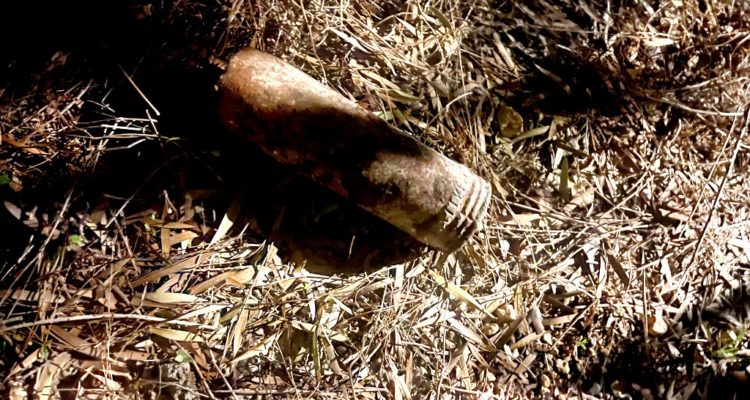It was a “miracle” that no one was hurt, said the Samaria resident.
By Pesach Benson, TPS
Tabor Yodla says it’s “a miracle” that nobody was hurt when he and a friend discovered a World War I-era bomb near his house on Sunday.
The 24-year old resident of Alei Zahav, a Jewish community in Samaria, told the Tazpit Press Service he was digging outside his home with friend, Iti Martin, to build a memorial to Yodla’s recently deceased father.
That’s when Yodla and Martin found the bomb. Yodla told TPS they didn’t know what they had found “because it looked like a box.”
“We washed it. We were trying to understand what it was. We called the security manager, who called the police. We thought we found treasure, but we found a bomb.”
He added that the bomb was in an area where people and children commonly pass by.
“If we had left this the way people told us to leave it, I can’t imagine what would’ve happened.” Yodla said it was “a miracle,” that nobody was hurt.
orld has learned that the explosive was a British shell from World War I.
Unexploded ordnance is sometimes found around Israel.
In April 2022, a U.S. family sparked chaos at Ben-Gurion Airport when it packed an unexploded bomb it found in the Golan Heights. The family intended to bring it home as a souvenir, not realizing it was live.
In November 2021, construction workers at a site in Ganei Tikva, near Tel Aviv, uncovered an unexploded British shell dating back to World War I which was destroyed by sappers in a controlled explosion.
Also in November 2021, Defense Ministry workers searching for unexploded mines in the Golan discovered an abandoned Syrian bunker from the Six-Day War of 1967 filled with mortar shells, flares, pyrotechnic munitions, explosives, and ammunition. The ordnance was destroyed inside the bunker in a controlled explosion.
The police warn the public not to touch unexploded munitions. Anyone who finds ordnance is urged to note its appearance and location — and take a photo if it is safe to do so before notifying the authorities.





